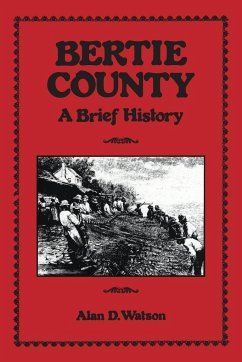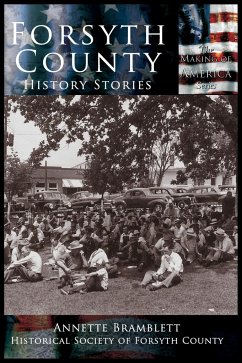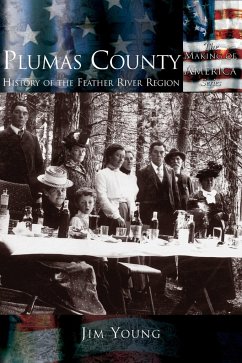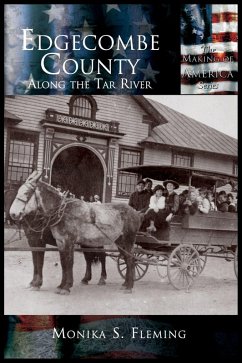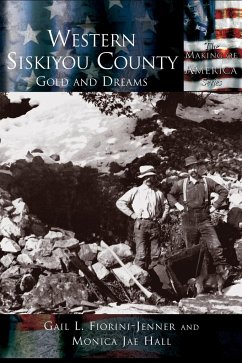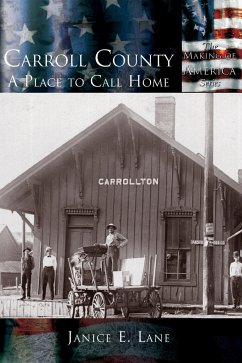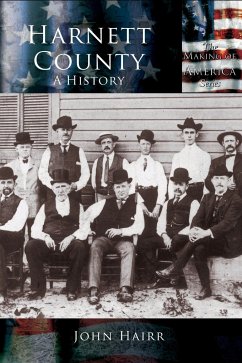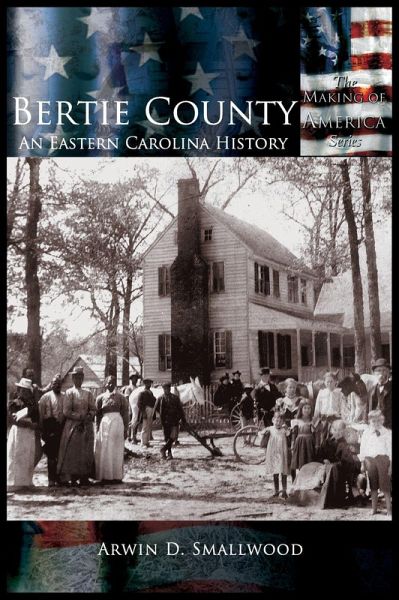
Bertie County
An Eastern Carolina History
Versandkostenfrei!
Versandfertig in 1-2 Wochen
22,99 €
inkl. MwSt.

PAYBACK Punkte
11 °P sammeln!
The lives of the Native American, African, and European inhabitants of Bertie County over its 400 years of recorded history have not only shaped, but been shaped by its landscape. One of the oldest counties in North Carolina, Bertie County lies in the western coastal plains of northeastern North Carolina, bordered to the east by Albemarle Sound and the tidewater region and to the west by the Roanoke River in the piedmont. The county's waterways and forests sustained the old Native American villages that were replaced in the eighteenth century by English plantations, cleared for the whites by A...
The lives of the Native American, African, and European inhabitants of Bertie County over its 400 years of recorded history have not only shaped, but been shaped by its landscape. One of the oldest counties in North Carolina, Bertie County lies in the western coastal plains of northeastern North Carolina, bordered to the east by Albemarle Sound and the tidewater region and to the west by the Roanoke River in the piedmont. The county's waterways and forests sustained the old Native American villages that were replaced in the eighteenth century by English plantations, cleared for the whites by African slaves. Bertie County's inhabitants successfully developed and sustained a wide variety of crops including the "three sisters"-corn, beans, and squash-as well as the giants: tobacco, cotton, and peanuts. The county was a leading exporter of naval stores and mineral wealth and later, a breadbasket of the Confederacy. Bertie County: An Eastern Carolina History documents the long history of the region and tells how its people, at first limited by the landscape, radically altered it to support their needs. This is the story of the Native Americans, gone from the county for 200 years but for arrowheads and other artifacts. It is the story of the African slaves and their descendants and the chronicle of their struggles through slavery, the Jim Crow era, and the Civil Rights Movement. It is also the story of the Europeans and their rush to tame the wilderness in a new land. Their entwined history is clarified in dozens of new maps created especially for this book, along with vivid illustrations of forgotten faces and moments from the past.



